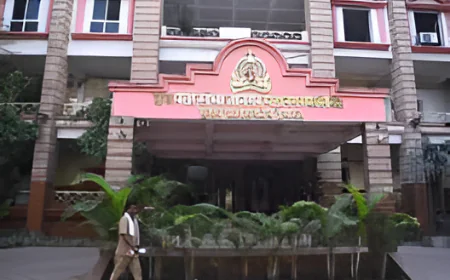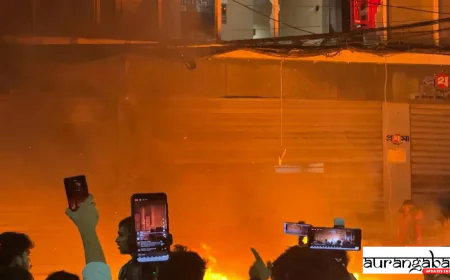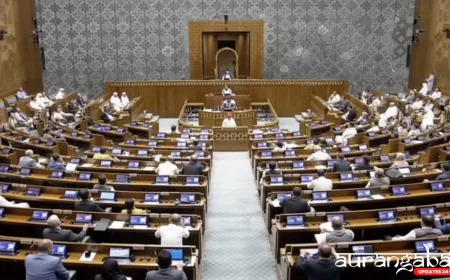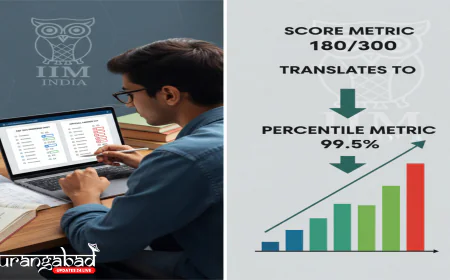Ex-Bangladesh PM Sheikh Hasina Sentenced to 6 Months in Prison
Former Bangladesh Prime Minister and Awami League leader Sheikh Hasina has been sentenced to 6 months in prison by the International Crimes Tribunal (ICT) in a contempt of court case. This marks a significant development for the ex PM, who has been out of office and living abroad for nearly a year. Explore the implications of this verdict in Bangladesh's complex political landscape.
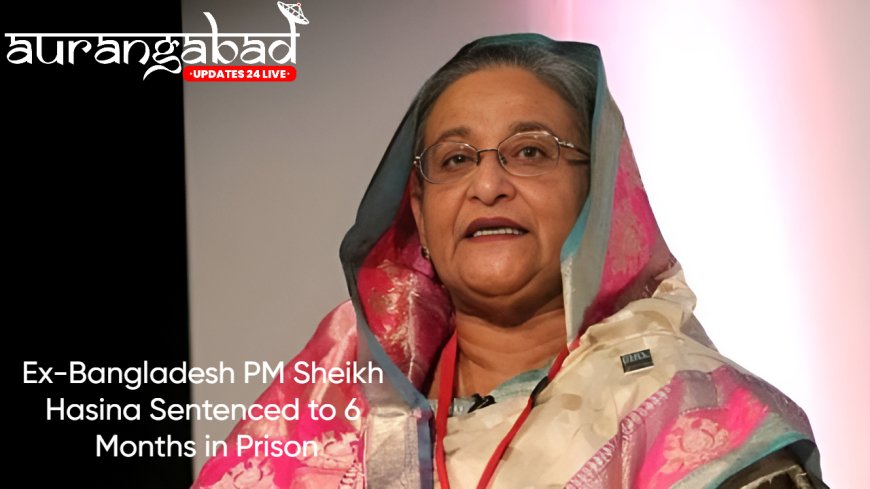
Chhatrapati Sambhaji Nagar, Maharashtra: In a significant and widely anticipated legal development, Bangladesh's International Crimes Tribunal (ICT) has sentenced former Prime Minister and prominent Awami League leader, Sheikh Hasina, to six months in prison. The verdict, delivered on Wednesday, July 2, 2025, stems from a contempt of court case, marking the first instance of a prison sentence for the influential politician since her departure from office and the country nearly eleven months ago. This decision sends ripples through Bangladesh's already charged political landscape, raising questions about the future of a key figure in the nation's recent history.
The Verdict: A Legal Precedent for a Former Head of Government
The judgment was handed down by a three-member bench of the ICT, presided over by Chairman Justice Md Golam Mortuza Mozumder. While the specific details of the contempt charge were not fully elaborated in initial reports, contempt of court typically involves actions or statements that undermine the authority, integrity, or dignity of a judicial body. For a figure of Sheikh Hasina's stature, such a conviction, particularly involving a prison term, carries substantial weight and sets a notable legal precedent within Bangladesh.
This verdict is particularly noteworthy as it represents the first time Sheikh Hasina has been directly sentenced in any legal case since she was ousted from power and subsequently left Bangladesh approximately eleven months prior to this ruling. Her absence from the country since then has made her a subject of ongoing political speculation and legal attention. The sentence, as reported by The Dhaka Tribune, brings a new dimension to her legal challenges and potentially impacts her political future, even in absentia.
Interestingly, the report also mentioned a separate, yet related, development where Shakil Akand Bulbul of Gobindaganj in Gaibandha was "acquitted to two months in prison." While the phrasing appears contradictory and likely implies a sentencing rather than an acquittal in that context, the primary focus remains on the verdict concerning the former Prime Minister.
The Broader Political Context: A Shifting Landscape
Sheikh Hasina's sentencing comes at a time when Bangladesh's political environment is under intense scrutiny. Her departure from office eleven months ago and subsequent flight from the country occurred amidst a period of significant political upheaval. The ruling Awami League, of which she was a prominent leader, has faced its own set of challenges, including bans and allegations of "shrinking political space." Concerns regarding the democratic environment in Bangladesh have been voiced by various international bodies and nations, including New Delhi, as highlighted by reports during this period.
The International Crimes Tribunal itself, while established to address atrocities committed during Bangladesh's 1971 War of Independence, has at times been a focal point of domestic and international debate regarding its procedures and political implications. A contempt of court charge against a former prime minister heard by such a tribunal naturally garners considerable attention, both domestically and internationally.
This verdict will undoubtedly influence the ongoing political discourse in Bangladesh. It could be interpreted in various ways: as a demonstration of the judiciary's independence, as a politically motivated move by the current establishment against a former rival, or as a reflection of the challenges in maintaining political stability and rule of law in the nation. Given Sheikh Hasina's historical role and her party's continued relevance, her legal status has direct implications for the country's political dynamics.
Implications for Sheikh Hasina and Bangladesh's Future
The six-month prison sentence, even if delivered in her absence, carries immediate and long-term implications for Sheikh Hasina. A criminal conviction can, depending on Bangladesh's electoral laws, potentially bar her from holding public office in the future. This could force the Awami League to reconsider its leadership strategy moving forward, especially if she is unable to return to Bangladesh or participate actively in its political processes due to legal constraints.
For Bangladesh, this event adds another layer of complexity to its political narrative. It underscores the fragility of political stability and the deep divisions that often characterize its political landscape. The international community will likely observe the follow-up actions closely, particularly concerning due process and the broader human rights situation in the country. The reactions from different political factions within Bangladesh will be crucial in shaping the immediate aftermath of this verdict. Supporters of Sheikh Hasina and the Awami League might view this as an act of political persecution, potentially leading to increased protests or solidarity movements. Conversely, those aligned with the current government or opposing factions might see it as a legitimate legal outcome.
Ultimately, the sentencing of former Prime Minister Sheikh Hasina for contempt of court by the ICT is a landmark event. It reflects the intricate interplay of law, politics, and power in Bangladesh. As the nation moves forward, the reverberations of this verdict will undoubtedly continue to shape its trajectory, reminding all stakeholders of the delicate balance required to maintain a stable, just, and democratic society. The coming months will be critical in observing how this legal judgment translates into political reality for both Sheikh Hasina and Bangladesh itse









